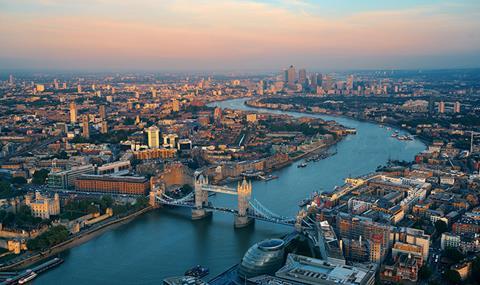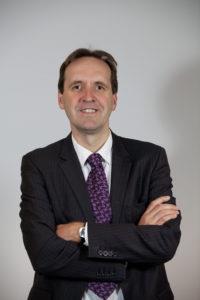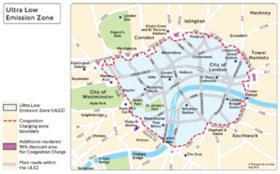
TfL is not currently planning a rationalisation of its plans for various congestion and emission zones across London, despite conceding that it has “a lot of zones” and some small operators are not ready for them.
Speaking at Freight in the City Expo on 6 November, Alex Williams, director of city planning at TfL, outlined plans for improving air quality and improving vulnerable road user safety across the capital ahead of the introduction of the central London Ultra Low Emission Zone (ULEZ) on 8 April 2019.
Williams said: “We have a lot of zones: congestion charging; T-charge… I sense that big operators are ready for it. Some of the smaller operators are not.”
He also pointed towards zero-emission zones, such as one proposed for the City of London and ultra-low-emission streets in Hackney, and said that TfL would look at one for central London in 2025. However the definition of what is required in such a zone is yet to be established.

As to whether TfL would simplify the current set-up of low, ultra and zero emission zones, Williams said: “At the moment there are no plans for rationalisation and simplification, but there will come a time when we need to look at that.
The ULEZ dealing with emissions and congestion charging. It is a complex picture. I haven’t got a political mandate to confirm a set of changes, but we will look at it.”
TfL is currently working on an action plan for freight which is set to be published in the spring. Williams said that there continued to be “a lot of engagement and dialogue in the industry as to what will be required in that”.
TfL is also looking at a short-term target of 10% fewer HGVs and LGVs in the central congestion charging zone during the AM peak by 2026. This, Williams conceded, was exacerbated by the continued rise in LGV traffic in the capital – a phenomenon driven by the continued rise of home delivery and online retail.

“We cannot pretend that freight is not there,” he said, “it is and we need to do something about it. We need to work with you on this, and we realise some of you are concerned with the impact on the bottom line.”













